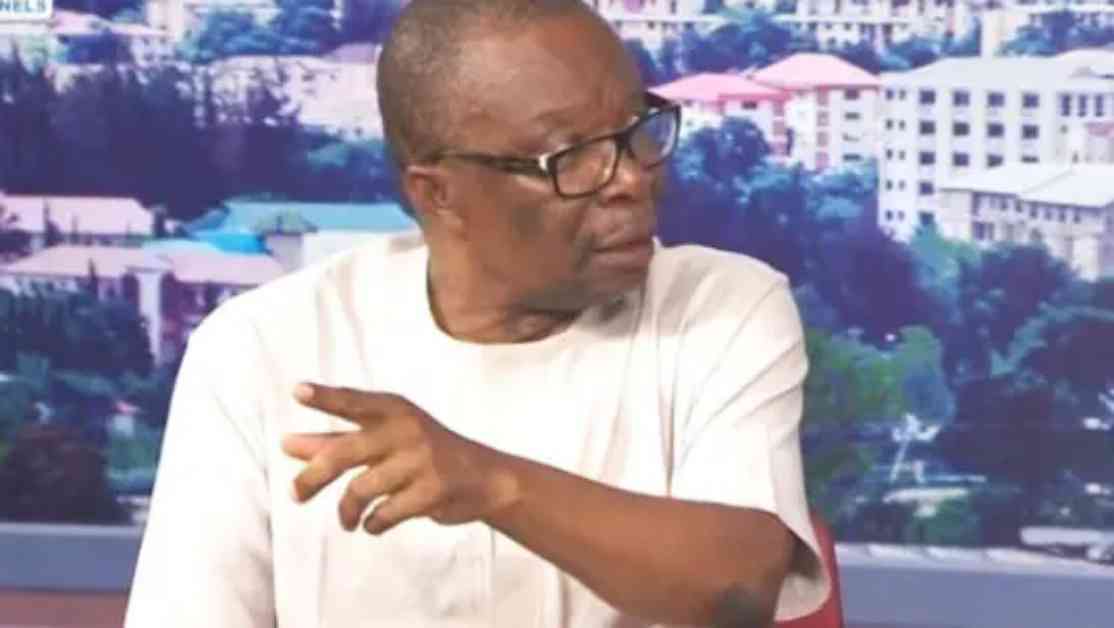Professor Emmanuel Osodeke, the President of the Academic Staff Union of Universities (ASUU), recently spoke out against the meager salaries paid to young lecturers in some private universities in Nigeria. During a public hearing organized by the House of Representatives Committee on TETFund and Other Matters, Osodeke expressed his dismay over the situation, highlighting the lack of labor unions in private institutions as a contributing factor.
In a poignant revelation, Osodeke shared that some young lecturers in private universities earn as little as ₦25,000 per month. This stark reality sheds light on the exploitative and unjust working conditions faced by academic staff in these institutions. The absence of labor unions, according to Osodeke, leaves these individuals vulnerable to such exploitation without a collective voice to advocate for fair compensation and better working conditions.
The Plight of Private University Lecturers
During his address at the public hearing, Osodeke recounted an interaction with a Graduate Assistant in a private university who disclosed receiving a monthly salary of ₦25,000. This individual, holding a Second Class Higher degree, is tasked with lecturing students in one of these private institutions. The disparity between the qualifications and the remuneration of these lecturers highlights a glaring issue within the private university sector.
Osodeke also raised concerns about the admission standards of some private universities, alleging that candidates with low scores in the Joint Admissions and Matriculation Board (JAMB) exams are being admitted. This raises questions about the quality of education and the standards upheld in these institutions, particularly when juxtaposed with the challenges faced by students seeking admission to public universities.
Funding Challenges and New University Establishment
In addition to addressing the plight of lecturers, Osodeke criticized the Federal Government’s continuous establishment of new universities despite inadequate funding for existing institutions. He pointed out the strain this places on the limited resources allocated to public universities, emphasizing the need to prioritize funding for these established institutions.
Highlighting specific examples, Osodeke questioned the rationale behind establishing new federal universities in locations already housing well-established institutions like Ahmadu Bello University and the University of Lagos. He underscored the need for strategic resource allocation and expansion of existing universities instead of spreading resources thin across new establishments.
The Urgent Need for Reform and Empowerment
As the discussion shifted to ongoing Tax Reforms and the proposed establishment of the Nigeria Education Loan Fund (NELFUND), Osodeke expressed concerns about the potential impact on the Tertiary Education Trust Fund (TETFund). He warned against jeopardizing the autonomy and effectiveness of TETFund, a crucial entity supporting infrastructure development in higher institutions.
Osodeke’s call to action urged the National Assembly Committees on TETFund to safeguard the fund’s autonomy amidst discussions on the Tax Reform Bills. Emphasizing the importance of sustaining infrastructure development and educational advancement, he cautioned against undermining TETFund’s role in supporting academic institutions across the country.
In conclusion, Osodeke’s impassioned remarks shed light on the challenges faced by private university lecturers, the need for equitable funding distribution, and the importance of preserving key educational support mechanisms like TETFund. As stakeholders continue to navigate these complex issues, his advocacy serves as a clarion call for reform, empowerment, and solidarity within the academic community.



























